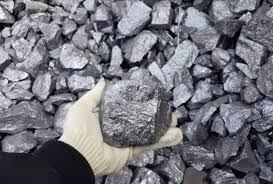A bipartisan bill proposed in the United States Senate on Friday would require defense contractors to stop buying rare earth minerals from China by 2026 and instead utilize the Pentagon to build a permanent reserve of the crucial minerals.
Senators Tom Cotton of Arkansas and Mark Kelly of Arizona are co-sponsoring the bill, which is the latest in a long line of US legislation aimed at thwarting China’s near-complete dominance of the sector.
It essentially exploits the Pentagon’s purchase of billions of dollars in fighter planes, missiles, and other weaponry as leverage to force contractors to stop relying on China and, as a result, assist the resurrection of rare earth production in the United States.
Rare earth metals are a collection of 17 metals that are processed into magnets used in electric vehicles, armament, and electronics. While the United States pioneered the business during WWII and produced the most extensively used type of rare earth magnet, China has gradually gained dominance over the whole sector over the last 30 years.
The United States has only one rare earth’s mine and no processing capability.
Cotton told reporters that “ending American reliance on China for rare earth extraction and processing is crucial to building up the US defense and technology sectors.”
The senator, who serves on the Armed Forces and Intelligence committees in the Senate, called China’s rise to the top of the global rare earth market “simply a policy choice made by the United States,” adding that he hoped new regulations would ease Beijing’s grip.
The bill dubbed the Restoring Essential Energy and Security Holdings Onshore for Rare Earths Act of 2022, would formalize and make permanent the Pentagon’s ongoing stockpile of rare earth. In 2010, China briefly halted rare earth exports to Japan and has threatened to do the same to the United States.
The Pentagon, on the other hand, buys supplies in part from China to develop that reserve, a conundrum that Senate staffers hope will be resolved over time.
The manufacture of rare-earth may be extremely polluting, which is one of the reasons why it has become controversial in the United States. The method is being studied to see whether it can be made cleaner.
Cotton said he has discussed the idea with a number of US executive departments, but he wouldn’t say whether he had spoken with President Joe Biden or the White House.
“This is an area in which Congress will lead, because many members, regardless of political affiliation, have been concerned about this same problem,” he said.
ENCOURAGE OUTPUT IN THE UNITED STATES
The bill was mostly supported by members of the young US rare earth industry; however, some were concerned that defense contractors would continue to request waivers to buy Chinese rare earth after 2026.
The Aerospace Industries Association, which represents Northrop Grumman Corporation, Lockheed Martin Corporation, and other aerospace and defense companies in the United States, declined to comment on the bill.
“Well-placed regulations like this one help us get closer to our goal of onshoring this essential supply chain,” Marty Weems, North American president of Australia-based American Rare Earths Ltd, which is developing three rare earth projects in the United States, said.
MP Materials Corp which owns the only rare earth mine in the United States and relies on Chinese processors expressed gratitude for “ongoing efforts by the Department of Defense and the broader US government to secure the domestic rare earth supply chain and promote free and fair competition.”
The plan, which the backers hope to incorporate into Pentagon funding legislation later this year, provides no direct support for rare earth miners or processors in the United States.
Instead, it mandates that Pentagon contractors quit utilizing Chinese rare earth within four years, with exceptions made only in exceptional circumstances. Defense contractors would have to say where they get their minerals right away.
Cotton stated that these regulations “should stimulate greater domestic (rare earth) development in our country.”
MP Materials, Australia’s Lynas Rare Earth Ltd, TDA Magnetics Inc, and Urban Mining Co. have all received funds from the Pentagon in the last two years in order to restart rare earth processing and magnet production in the United States.
Kelly, a former astronaut and member of the Armed Services and Energy committees in the Senate, said the bill will “strengthen America’s position as a worldwide leader in technology by reducing our country’s reliance on adversaries like China for rare earth materials.”
The bill solely relates to weapons, not other equipment purchased by the US military.
Furthermore, the US trade representative would be expected to investigate whether China is manipulating the rare earth market and make recommendations on whether trade penalties are necessary.
“I don’t think the response to Chinese aggression or Chinese threats is to continue to submit ourselves to Chinese threats,” Cotton said when asked if such a move would be perceived as hostile by Beijing.

















